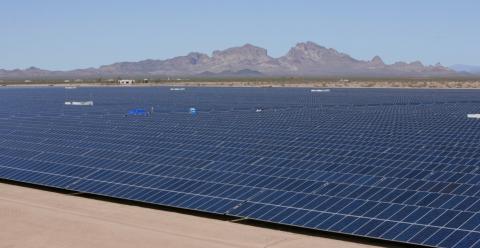Topic: Less of What We Don’t Need
-
Why Are Young People Joining Cooperatives? 3 Youth Leaders Share Their Views
—
by
For many, cooperatives represent the past, not the future. But young people around the globe are challenging that notion. At the International Cooperative Alliance Conference, held in November in Kuala Lumpur, Malaysia, members of the Youth Network, a multilingual, diverse, global initiative to connect and empower youth to join and create cooperatives around the world,…
-
Ugandans Resist Land Grabbing and US-backed Dictatorship: an Interview with Phil Wilmot
—
by
Eighty-four percent of the population of Uganda are rural subsistence farmers. They are resisting both rampant land grabbing and US ally General Yoweri Museveni’s attempt to rule for life. I spoke to Phil Wilmot , an American-born activist who now lives in rural Uganda. Ann Garrison: Could you tell us how you came to live…
-
China’s Ban on Plastic Waste Imports Is a Wake-Up Call
—
by
As of January 1, China effectively banned imports of plastic recyclables from other countries. The change represents a major policy shift: In 2016, China took 51 percent of the 15 million tons of plastic recyclables in trade globally, including a whopping 40 percent of US citizens’ plastic recycling. So when China announced that it was…
-

Cornucopian Renewable-Energy Claims Leave Poor Nations in the Dark
Stanford professor Mark Jacobson and his colleagues have written yet another paper purporting to show that 100 percent of energy demand can be fulfilled by wind, solar, and hydroelectric generation. This latest study, which comes in the form of a manuscript accepted but not yet published by the journal Renewable Energy, seeks to show how…
-
Venezuela: La Mancha del Petróleo
—
by
Oil flows through the veins of Venezuela, accounting for 95% of exports. It dominates national politics and influences foreign representations of the country, as it has since its first discovery. Extensive studies on oil in Venezuela deal with either the scientific and technical aspects of production or the political, economic, and—more recently—the cultural and social…
-
Beware the Green Corporate Scam: the 100% Renewable Façade
—
by
A few months ago, Google announced that they will achieve their goal of being 100% powered by renewable energy in 2017 [1]. They are not the only corporation with such lofty goals. Google is joined by GM, Apple, Coca Cola, and more than one hundred companies who have also pledged to go “100% renewable” [2].…
-

Reiterating the Need for Limits
Stan Cox recently published several articles making the unpopular argument that confronting the problem of climate change with any commitment to energy justice, social justice, and any reasonable expectation for retaining necessary ecological balances, cycles and integrity will require that we think about limits when it comes to energy production and consumption [1]. He and…
-
Artificial Intelligence: The Final Frontier of Domination
Robots will take over the world, maybe soon. This is a view held by eminent scientists like Stephen Hawking and James Lovelock. Physicists and engineers are building artificial intelligences (AIs) that are smarter than we are, but they’re still computers. Will they be able to develop consciousness and a sense of their own self-interest? If…
-
What Will It Really Take to Avoid Collapse?
—
by
Fifteen thousand scientists have issued a dire warning to humanity about impending collapse but virtually no-one takes notice. Ultimately, our global systems, which are designed for perpetual growth, need to be fundamentally restructured to avoid the worst-case outcome. For a moment, the most important news in the entire world flashed across the media like a…


